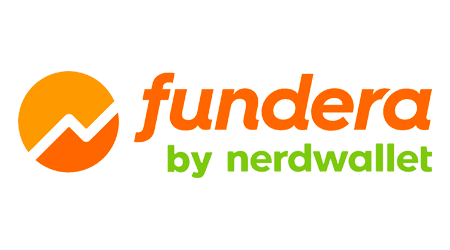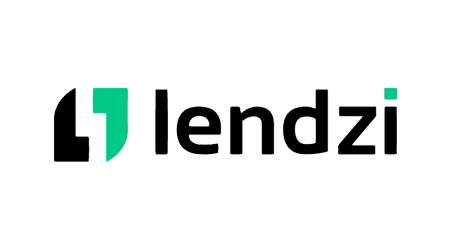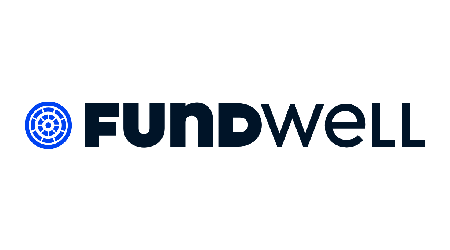Business lenders offer $100,000 business loans of all types, including term loans, lines of credit, accounts receivable financing and more. However, your business typically needs to meet basic credit, annual revenue and time-in-business requirements to qualify for a loan.
Where to get a $100,000 business loan
Most lenders, including banks, credit unions, alternative online lenders and loan marketplaces, offer $100,000 business loans. Established businesses can often find the most competitive rates at large national banks. Newer firms may have better luck with an online lender, a business loan marketplace or an SBA loan specialist offering SBA 7(a), Express and 504 loans.
Compare providers for $100,000 business loans
Select your time in business, annual revenue and credit score ranges to find lenders you might qualify with. Select Go to site to get started on your application. Or, visit our review page by choosing More info.
Compare other products
We currently don't have that product, but here are others to consider:
How we picked theseWhat is the Finder Score?
The Finder Score crunches 12+ types of business loans across 35+ lenders. It takes into account the product's interest rate, fees and features, as well as the type of loan eg investor, variable, fixed rate - this gives you a simple score out of 10.
To provide a Score, we compare like-for-like loans. So if you're comparing the best business loans for startups loans, you can see how each business loan stacks up against other business loans with the same borrower type, rate type and repayment type.
How to get a $100K business loan
The application process depends on the type of loan you get, but these general steps should help you with most lenders.
- Determine your business’s needs. Speak with your financial advisor or go over your finances to confirm your business needs a $100,000 loan and can afford the repayments.
- Choose your loan type. Next, decide which type of loan makes the most sense for your business. If you have a specific expenditure in mind, you may want to go with a term loan. Or, if you have ongoing cash flow problems, a line of credit might make more sense.
- Compare lenders. Use our table of lenders to start your search. You can also check with your current bank and other financial institutions to compare a variety of rates and terms.
- Prepare financial documents. A lender may ask to see proof of revenue, a business plan and other documentation when you apply. Be sure to request a list of all the required documents to ensure you have everything your lender needs.
- Submit a completed application. Once you have your documents gathered, work with your lender to submit your application. Some may have an online process, while others will require you to talk to someone on the phone or visit a branch office.
How to qualify for a $100,000 loan
While a $100K business loan is relatively small in the business loan space, it’s still substantial enough that you’ll need to meet certain revenue requirements and other criteria, including:
- At least six months in business. Some lenders require you to be in business for at least six months to a year to qualify for a $100,000 loan, although many banks only consider firms with two or three years in business.
- Minimum monthly revenue. Revenue requirements vary significantly by lender, but most require a bare minimum of at least $10,000 a month.
- Good personal credit. Banks typically require a personal credit score of 670 or more, while online lenders may go as low as 520 for short-term financing like merchant cash advances (MCAs). For invoice financing or factoring, your credit score may not factor in at all.
- A personal guarantee. Lenders may also require a personal guarantee, especially for unsecured loans not backed by business assets.
If you’re looking for a $100,000 loan to start a business, you might find it challenging — most lenders require at least six months to one year in business and proof of revenue before they’ll give you a loan. However, you may be able to take out a personal loan and use it for business expenses. You can also explore the best loans for startups to better understand your options.
How much does a $100,000 business loan cost?
The cost of a $100K business loan ultimately depends on your APR and loan term. Standard business loans and lines of credit may have APRs ranging from around 7% to 100%. Short-term financing options like MCAs, invoice factoring and invoice financing all have higher rates, which make them a more expensive — if quicker — choice.
The repayment period also impacts the final cost. In general, traditional long-term loans have lower rates and smaller payments, but you could end up paying more interest overall. Shorter terms, on the other hand, tend to come with higher rates and larger monthly payments, but you could potentially save on interest, even with a higher rate.
For example, a $100,000 loan with a 20% APR and a three-year term has monthly repayments of $3,716.36, so you’d pay a total of $33,788.90 in interest and fees over the life of the loan. By comparison, the same loan at 15% over seven years has payments of $1,765.27 a month — resulting in total charges of $48,282.96.
Use our business loan calculator to compare monthly loan payments based on different rates and terms.
Business loan calculator
See how much you'll pay|
Your loan
|
|---|
| Loan amount |
|
$
|
| Loan terms (in years) |
|
|
| Interest rate |
|
%
|
Fill out the form and click on “Calculate” to see your estimated monthly payment.
or
Compare business loans nowBased on your loan terms
| Principal | $ |
|---|---|
| Interest | $ |
| Total Cost | $ |
8 types of business loans
Here are some of the most common types of business loans that finance up to $100,000 or more.
Term loans
Term loans are the most common type of business loan. You’re given a lump sum, usually at a fixed interest rate and pay it back in equal monthly installments. Loan amounts can reach into the millions, and you have the option of a short-term loan — typically up to two or three years — or a long-term loan, which could stretch as long as 10 to 25 years. Interest rates for these loans are typically some of the lowest you can find across loan types, but you’ll need a good credit score to qualify for the best APRs.
Consider if you…
- Have a specific expense in mind
- Know exactly how much you want to borrow
- Have good credit and strong financials
Consider other options if you…
- Aren’t sure how much you need to borrow
- Have ongoing financing needs
- Don’t meet the loan requirements
Business lines of credit
A business line of credit may be a good option if you’re looking for the flexibility of a credit card and access to cash. LOCs can be easier to qualify for than term loans, and it’s a renewable source of financing. Plus, you only have to pay interest on the funds you use, so it may be a good choice if you need an emergency fund or have an ongoing project. But loan amounts may not be as high as other options, and terms are typically short at 24 months or less.
Consider if you…
- Prefer renewable financing
- Aren’t sure how much you need
- Have short-term cash flow needs
Consider other options if you…
- Prefer a lump sum loan
- Need a longer loan term
- Don’t need ongoing access to cash
SBA Loans
SBA loans can range from around $13,000 to $5.5 million, and there are a number of options to consider. They’re backed by the federal government’s Small Business Administration (SBA) — making them less risky for lenders — but provided by banks, credit unions and online lenders. SBA loans typically have strict requirements, and the loan process can be lengthy, but rates are usually very competitive if you qualify.
Consider if you…
- Can meet SBA loan requirements
- Don’t qualify for financing elsewhere
- Have decent credit
Consider other options if you…
- Need faster funding
- Qualify for other business loans
- Don’t meet SBA requirements
Equipment loans
Equipment loans are a type of secured financing where the asset you purchase acts as collateral for the loan, with terms similar to a car loan. And because equipment loans are secured, you can generally get a better rate than with an unsecured loan, although you risk losing the asset if you can’t make the payments. Equipment lenders may finance up to 100% of the purchase, but in some cases, you may need to come up with a down payment.
Consider if you…
- Need to finance equipment
- Can qualify for a lower rate
- Have a down payment if needed
Consider other options if you…
- Don’t need an equipment purchase
- Prefer an unsecured loan
- Don’t have a down payment
Merchant cash advances
A merchant cash advance — also known as a business cash advance or revenue advance — allows you to borrow a lump sum of money based on a percentage of your future sales or revenue. It’s typically a fast form of funding and has more lenient requirements to qualify for than other types of business financing. But rates are usually expensive, and you may have to make weekly or even daily repayments. It’s also not a good option for businesses with inconsistent revenue or those that don’t have a lot of credit card sales.
Consider if you…
- Have a lot of card sales
- Don’t qualify for cheaper funding
- Need fast, short-term financing
Consider other options if you…
- Don’t do a lot of card sales
- Have good credit and strong revenues
- Don’t need fast funding
Invoice factoring
If your company invoices other businesses or government agencies, invoice factoring is a way to leverage your unpaid invoices in exchange for cash. How it works is you sell your outstanding invoices to a factoring company for a percentage of their worth. Then, as your customers settle their invoices, the factoring company sends you the difference minus its fees. This type of financing is typically fast, but it’s pricey and not suitable for all businesses.
Consider if you…
- Need fast funding
- Don’t qualify for other business loans
- Invoice other businesses
Consider other options if you…
- Can qualify for less expensive funding
- Don’t invoice other businesses
- Don’t have enough qualified invoices
Invoice financing
Similar to invoice factoring, invoice financing allows you to use your outstanding invoices as a way to access cash now, but you don’t sell your invoices. Instead, you take out an advance based on a percentage of your unpaid invoices and repay it as your customers pay you. This method allows you to maintain control of your invoices, but it’s also expensive and requires weekly or daily repayments, which may be tough to manage.
Consider if you…
- Invoice other businesses
- Have enough outstanding invoices to qualify
- Don’t qualify for other business loans
Consider other options if you…
- Qualify for cheaper financing
- Don’t invoice other businesses
- Want to keep control of your invoices
Personal loans for business
Using a personal loan for business expenses is common and might be a sensible choice — especially if you’re just starting out. While most personal loans are capped at $50,000, a few lenders, like SoFi® and LightStream, offer loans up to $100,000. But you’ll likely need a good credit score to qualify, and you may not have a lot of options to choose from.
Consider if you…
- Have good credit
- Prefer a longer loan term
- Don’t qualify for business loans
Consider other options if you…
- You have poor credit
- You qualify for business loans
- You want more loan options
Unsecured vs. secured business loans
Business loans are either secured or unsecured. A secured loan is backed by collateral from your business — like real estate, equipment or other assets. An unsecured loan is extended based on your creditworthiness and other factors, but it isn’t backed by collateral. However, you’ll typically pay higher rates for unsecured loans, and you’ll likely be required to provide a personal guarantee.
How to get a $100K business loan with bad credit
If your credit isn’t great, one option is to explore lenders that specialize in bad credit business loans. These lenders typically have more lenient requirements to qualify, although they make up for the added risk with higher rates and fees.
You can also explore financing options that aren’t as concerned with your personal credit — like merchant cash advances or invoice factoring or financing — but you’ll need the required sales or invoices to back it up.
Bottom line
A $100,000 loan can be a good solution for businesses that want to expand, need access to working capital or want to purchase equipment or inventory. But be sure to take your time and do your research to consider the best business loans and determine exactly what type of financing makes the most sense for your business.
Frequently asked questions
Is it hard to get a $100,000 business loan?
How difficult it is depends largely on your credit score and revenues. If both of those elements are strong, getting a $100K business loan should be relatively straightforward. But if you don’t meet lender requirements in those areas, you may need to seek alternative forms of financing, such as invoice factoring or financing or a merchant cash advance.
What credit score do you need for a $100K loan?
Credit score requirements vary widely by lender. For instance, OnDeck requires a credit score of at least 625, while Fora Financial works with scores as low as 500.
Generally, the higher your credit score, the more competitive your options. It can be more difficult to find financing of $100,000 if your score is below 670 — typically the minimum to qualify as good credit. But some lenders consider lower scores, or you can look into business loans that don’t require a credit check.
Can I get a $100,000 business loan with bad credit?
Yes, it’s possible. Some lenders work with borrowers that have scores as low as 500. That’s because lenders consider other factors like your cash flow and revenue to determine your ability to repay the loan. But if you qualify for a loan with bad credit, you’ll likely end up with shorter terms and less competitive rates than borrowers with good credit.
Other business loan amounts:
Ask a question
More guides on Finder
-
8 Best Commercial Truck Loans (2026)
Best financing options for trucking companies to cover licensing, new trucks, insurance, vehicle maintenance and more.
-
How to Get a Million Dollar Business Loan in 2026
We look at eligibility requirements, potential costs, SBA options and more.
-
$50K No-Doc Business Loans: Fast Funding, Apply Today (2026)
Compare $50,000 no-doc business loans for an expedited lending process.
-
How to Get a $5,000 Business Loan (2026)
Compare $5,000 business loans and what you need to qualify.
-
How to Get a $400,000 Business Loan in 2026
Compare different lenders to secure a $400,000 business loan with favorable terms.
-
Compare $40,000 business loans (2026)
Find a $40,000 business loan for your business and calculate the cost before you apply.
-
How to Get a $10 Million Business Loan in 2026
Buy real estate, another business or expand your enterprise.
-
How to Get a $3 Million Business Loan in 2026
You’ll have an easier time qualifying if you have strong credit and high revenue.
-
How to Get a $5 Million Business Loan in 2026
Find financing to grow your business — or even buy another.
-
Compare $10,000 Business Loans in 2026
Stay away from big banks for a loan of this size.





